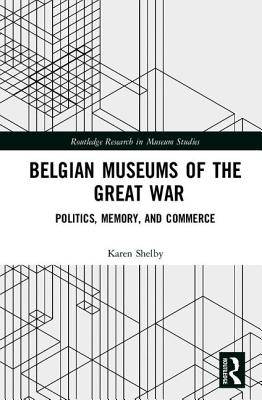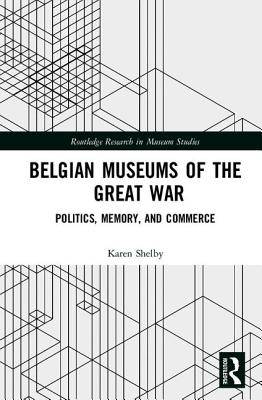
- Retrait gratuit dans votre magasin Club
- 7.000.000 titres dans notre catalogue
- Payer en toute sécurité
- Toujours un magasin près de chez vous
- Retrait gratuit dans votre magasin Club
- 7.000.0000 titres dans notre catalogue
- Payer en toute sécurité
- Toujours un magasin près de chez vous
Description
Belgian Museums of the Great War: Politics, Memory, and Commerce examines the handling of the centennial of World War I by several museums along the Western Front in Flanders, Belgium. In the twenty-first century, the museum has become a strategic space for negotiating ownership of and access to knowledge produced in local settings. The specific focus on museums and commemorative events in Flanders allows for an in-depth evaluation of how each museum works with the remembrance and tourist industry in the region while carving a unique niche. Belgian Museums of the Great War writes the history of these institutions, analyzes the changes made in advance of the anniversary years, and considers the site-specificity of each institution and its architectural frame. Since museums not only transmit information but also shape knowledge, as Eileen Hooper-Greenhill has noted, the diverse narratives and community programs sponsored by each museum have served to challenge prior historiographies of the war. Through newly revamped interactive environments, self-guided learning, and an emphasis on the landscape, the museums in Flanders have a significant role to play in the ever-changing dialogue on the meaning of the history and remembrance of the Great War.
Spécifications
Parties prenantes
- Auteur(s) :
- Editeur:
Contenu
- Nombre de pages :
- 290
- Langue:
- Anglais
- Collection :
Caractéristiques
- EAN:
- 9781138941052
- Date de parution :
- 21-09-17
- Format:
- Livre relié
- Format numérique:
- Genaaid
- Dimensions :
- 156 mm x 233 mm
- Poids :
- 699 g

Les avis
Nous publions uniquement les avis qui respectent les conditions requises. Consultez nos conditions pour les avis.






